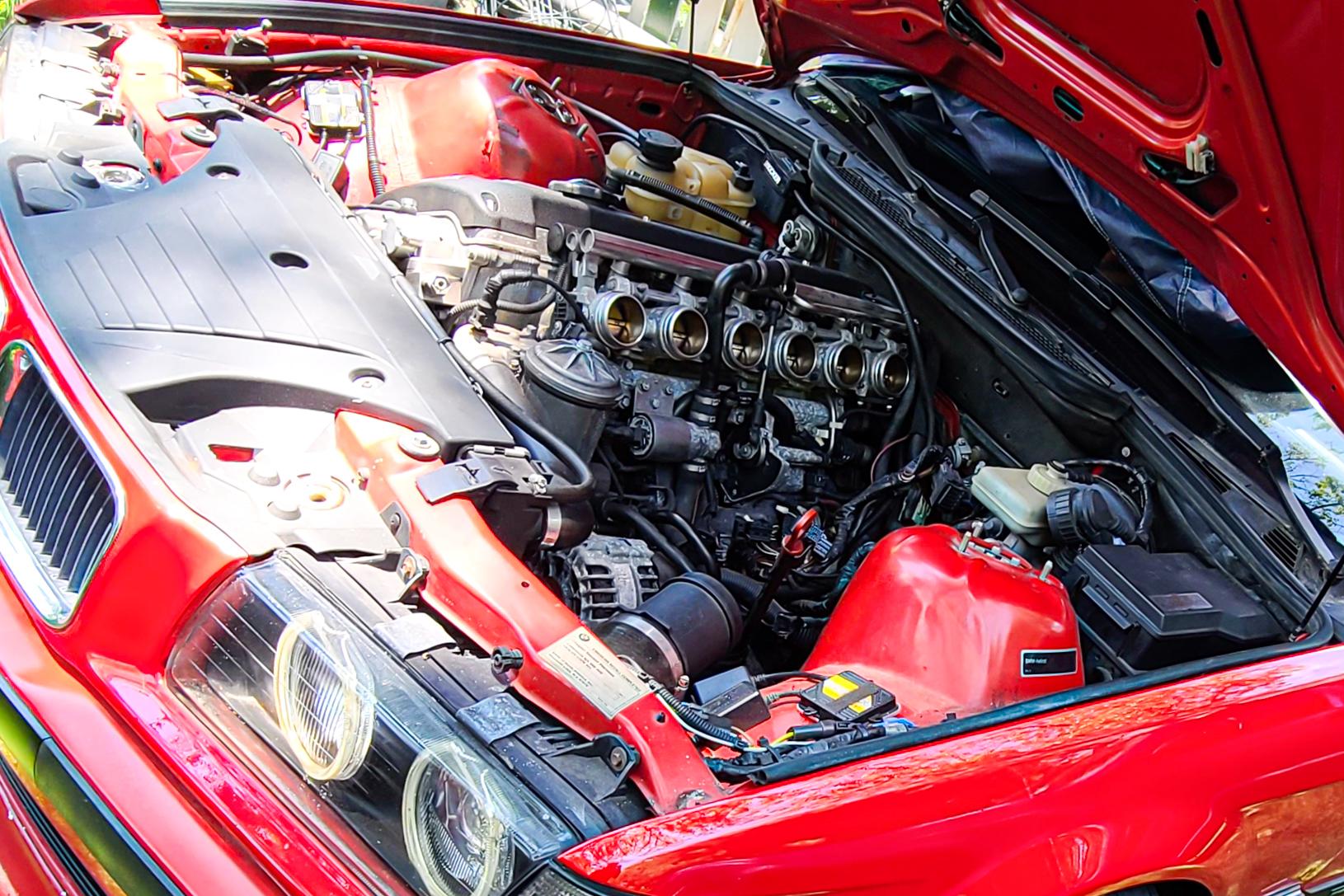BMW 318ti Testimonial: What Makes This Model Attract Attention
BMW 318ti Testimonial: What Makes This Model Attract Attention
Blog Article
Essential Factors To Consider for Selecting the very best Engine for Your Requirements
In the realm of picking the suitable engine to meet your needs, several critical aspects need precise factor to consider to ensure optimum performance and effectiveness. From the nuanced equilibrium between power and efficiency to the often-overlooked aspects of maintenance and solution requirements, each aspect plays a pivotal function in determining one of the most suitable engine for your certain needs. As the intricacy of engine technologies remains to evolve, critical one of the most suitable choice necessitates a deep understanding of the interaction in between numerous factors to consider. By exploring the elaborate internet of factors that underpin this decision-making procedure, a more clear course emerges towards picking an engine that not only satisfies yet surpasses your assumptions.
Power and Performance
When examining engines for optimum efficiency, it is critical to focus on both power result and performance. Power result determines the capacity of an engine to create power, which straight affects its efficiency. A high power outcome is necessary for requiring tasks such as high-speed requirements or sturdy applications. It makes sure that the engine can take care of the work successfully and effectively. Power alone is not sufficient; performance plays a significant role in establishing the total performance of an engine. Efficiency describes exactly how well the engine converts gas into useful power. A a lot more efficient engine will certainly provide better gas mileage, lower emissions, and lowered operating expenses. Striking the ideal balance in between power output and performance is crucial to selecting an engine that fulfills your particular needs. When making this decision, it is essential to take into consideration aspects such as the intended usage of the engine, ecological effect, and long-term expense implications. By very carefully reviewing both power and efficiency, you can pick an engine that provides optimal efficiency and meets your needs successfully.
Fuel Efficiency and Economic Climate
Gas effectiveness refers to the engine's capability to convert fuel right into power with very little waste, directly impacting operating costs and ecological sustainability. Engines with higher gas performance not just minimize fuel expenses yet additionally reduce carbon discharges, contributing to a greener procedure.

Compatibility and Application
Taking into consideration the fuel effectiveness and economic situation of an engine, the next vital aspect to address is its compatibility and application within certain functional contexts. Compatibility refers to how well the engine integrates with the total system or tools it powers.
Different engines are developed for particular functions, whether it be commercial equipment, aquatic vessels, cars, or power generators. Understanding the intended application allows link for the selection of an engine that can deliver the required power output, torque, and operational qualities.
Upkeep and Service Demands
Maintenance and service needs play a vital role in guaranteeing the long life and optimal efficiency of an engine. Regular maintenance is necessary to protect against break downs, prolong the lifespan of the engine, and maintain its effectiveness. When choosing an engine, it is essential to think about the supplier's recommended upkeep timetable and the accessibility of solution facilities or certified service technicians.
Elements such as the frequency of oil adjustments, filter replacements, and total inspections can significantly influence the engine's performance. Some engines might call for even more frequent maintenance based upon their layout and use, while others may have longer intervals between maintenance checks. It is essential to follow these service demands to stay clear of pricey repairs and unanticipated downtime.

Cost and Budget Plan Factors To Consider
Spending plan restrictions frequently play a substantial role in the decision-making procedure when selecting an engine for a certain application. When considering the cost and budget implications of picking an engine, it is necessary to assess not just the initial acquisition price however also the long-lasting expenditures connected with upkeep, fuel intake, and potential upgrades or repair services. It is essential to strike an equilibrium in between the in advance price of the engine and its overall lifecycle expenses to ensure that the selected engine continues to be financially sustainable throughout its functional lifespan.
Aspects such as gas dependability, efficiency, and resilience can straight affect the complete cost of possession of an engine. While a much more costly engine might have greater upfront costs, it could potentially lead to lower maintenance and fuel costs gradually, hence supplying far better worth in the lengthy run. Additionally, considering the accessibility and expense of spare parts, in addition to the simplicity of maintenance and service, can help protect against unexpected financial pressure in the future. By carefully evaluating these cost and budget factors to consider, you can make an enlightened choice that straightens with your economic restrictions and operational requirements.
Conclusion

Gas efficiency refers to the engine's capability to transform fuel into power with marginal waste, directly affecting operating costs and ecological sustainability.Variables influencing gas effectiveness include engine style, burning performance, and total efficiency optimization. Furthermore, choosing the appropriate fuel type and quality as suggested by the engine maker can additionally enhance effectiveness and lengthen his explanation engine lifespan.
Engines with good serviceability functions and readily offered parts can decrease maintenance expenses and lessen the time the engine is out of procedure - bmw 318ti. It is vital to strike a balance in between the upfront cost of the engine and its overall lifecycle expenses to ensure that the selected engine remains financially sustainable throughout its functional lifespan
Report this page